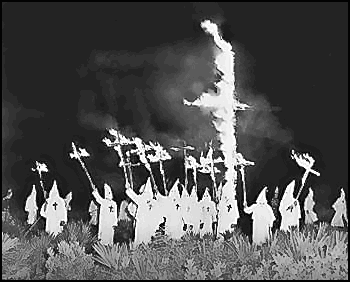Perhaps SRK was mistaken for Abdul Qadeer Khan (AQK), the alleged nuclear weapons proliferator. However, there are subtle differences – aside from the rest of their names – which may have enabled US officials to tell them apart. SRK is Indian while AQK is Pakistani; SRK is a 43-year old Bollywood hunk whereas AQK is a 73-year-old nuclear scientist.


Nuclear Bomb Khan (top) and his identical evil twin, Bollywood Bomb Khan (bottom)
Consequently, some Indians have raised a ruckus, calling it a “national insult.”
But my point is not to poke at the US officials. Their watchlist of known or suspected terrorists probably runs into tens of thousands, and there must be several Khans in that list. The entry of any of these individuals could have significant repercussions for the US homeland, which may include a second 9/11. In this context, we should not begrudge them the few hours it may take to clearly satisfy themselves that SRK is not a terrorist.

Chaka Khan - I Feel for You...You're Next!
Some of the criticism leveled against the US officials is that they should have known that SRK was a “world figure.”
This would indeed be the case if customs and checkpoint officers spent their tea breaks going through the entertainment and gossip magazines. Personally, I’d feel better if they spent their time becoming more acquainted with the modus operandi of smugglers and terrorists.
Another Bollywood director Kabir Khan (another Khan!) was quoted as saying that what happened to SRK was “a clear case of fear psychosis” and was only noticed because it involved a superstar.
In other words, he was suggesting that more Indians (and south Asians?) were being detained at US airports.
I think there is likely to be some truth in the latter. One would imagine that the US watchlist will have a significant number of Arab/Asian names, while travelers from south Asia and the Middle East will include a disproportionate number of Husseins and Osamas. Statistically, we should expect that some groups of travelers are more likely to be stopped for further checks.
But to label this as “fear psychosis” is to miss this point altogether.
When rooted in sound logic and processes (like interviewing or making further checks), profiling/discrimination is not such a dirty word. Everyone benefits from the additional security which the checks provide (at some inconvenience to a minority). As a whole, queues would also be shorter and planes are not delayed.
The bottom line is that immigration and security regulations must apply to all travelers. Inevitably, some people – whether by their profile or name – would be subject to greater scrutiny. IMO, the fact that a Bollywood star gets stopped at a US airport is a sign that the system is working as it should.
Would Brad Pitt be subject to a strip search at an Indian airport? If it were that one of the perpetrators of the Mumbai attacks in November 2008 was known only as “B. Pitt”, the very least that an Indian immigration officer should do is to give him a second glance.

Luckily for Kublai, no such profiling back then


